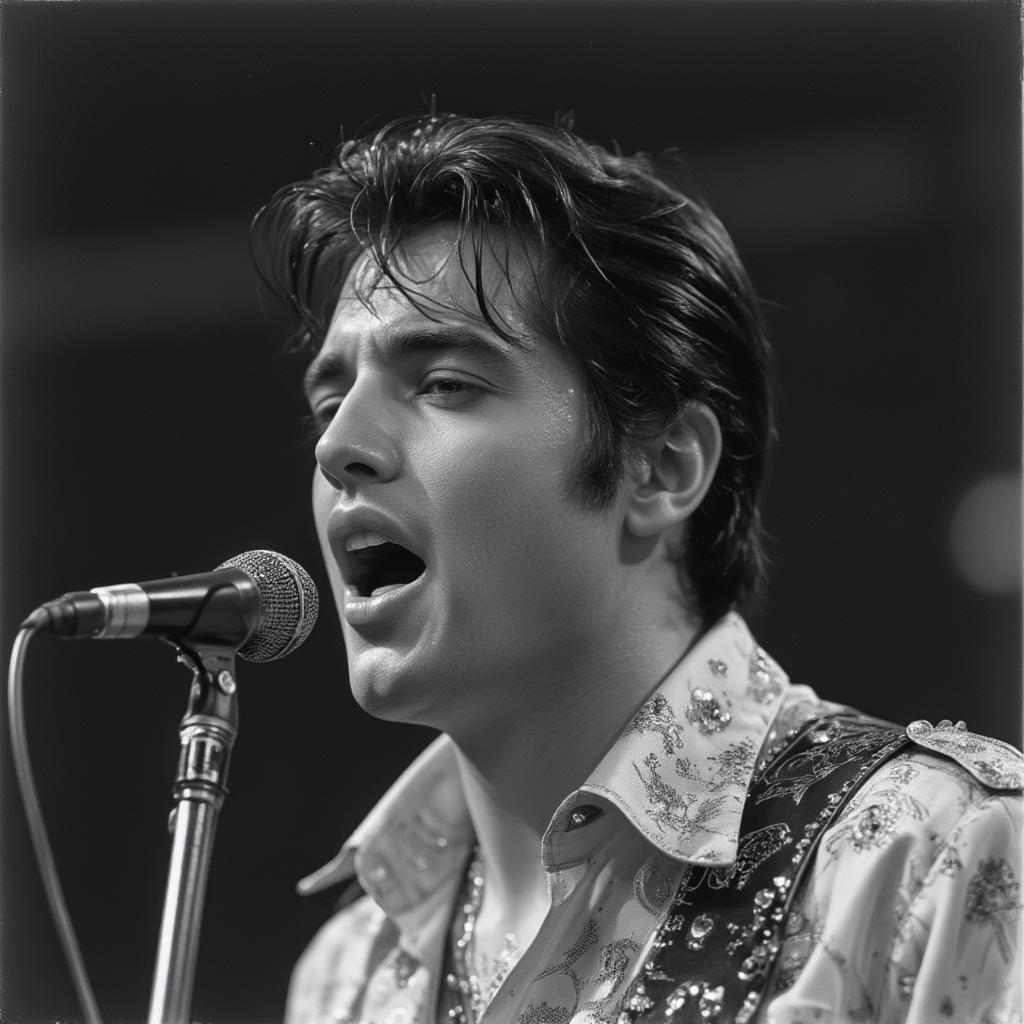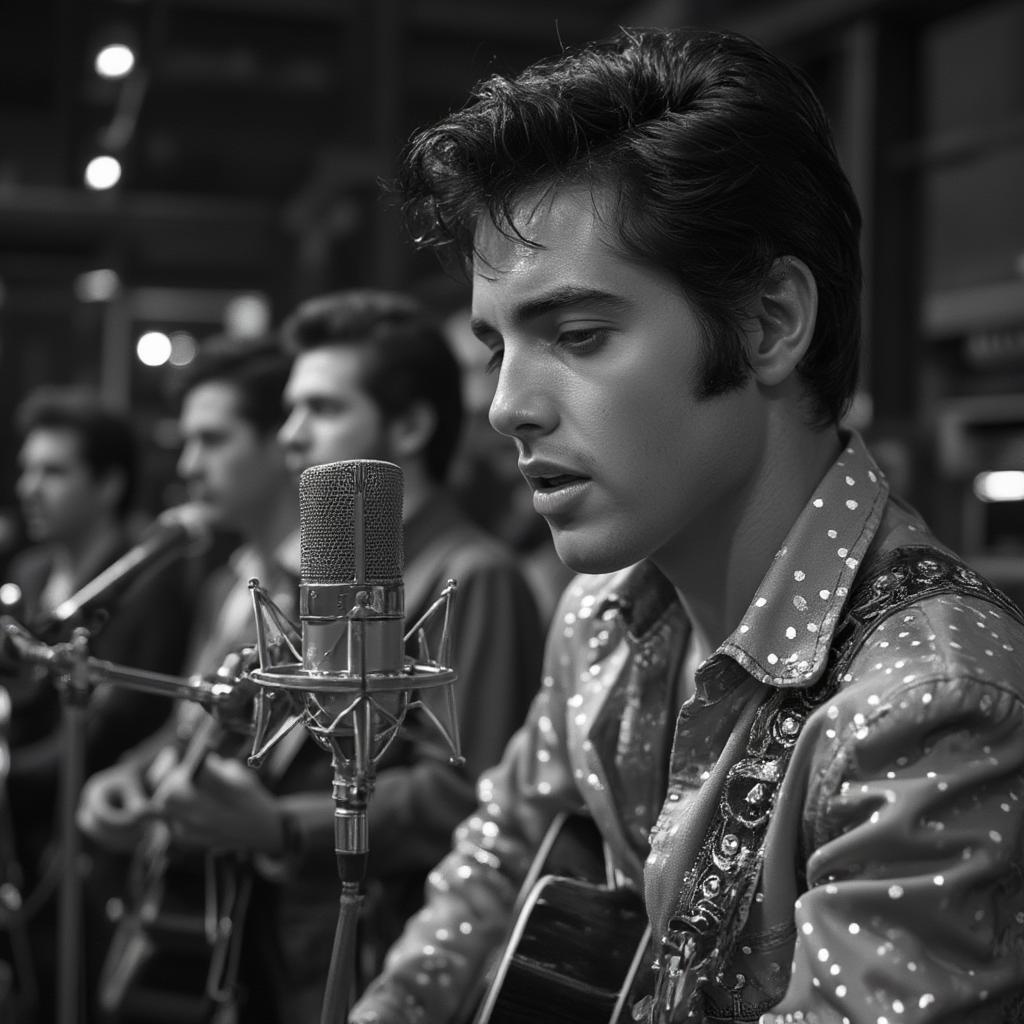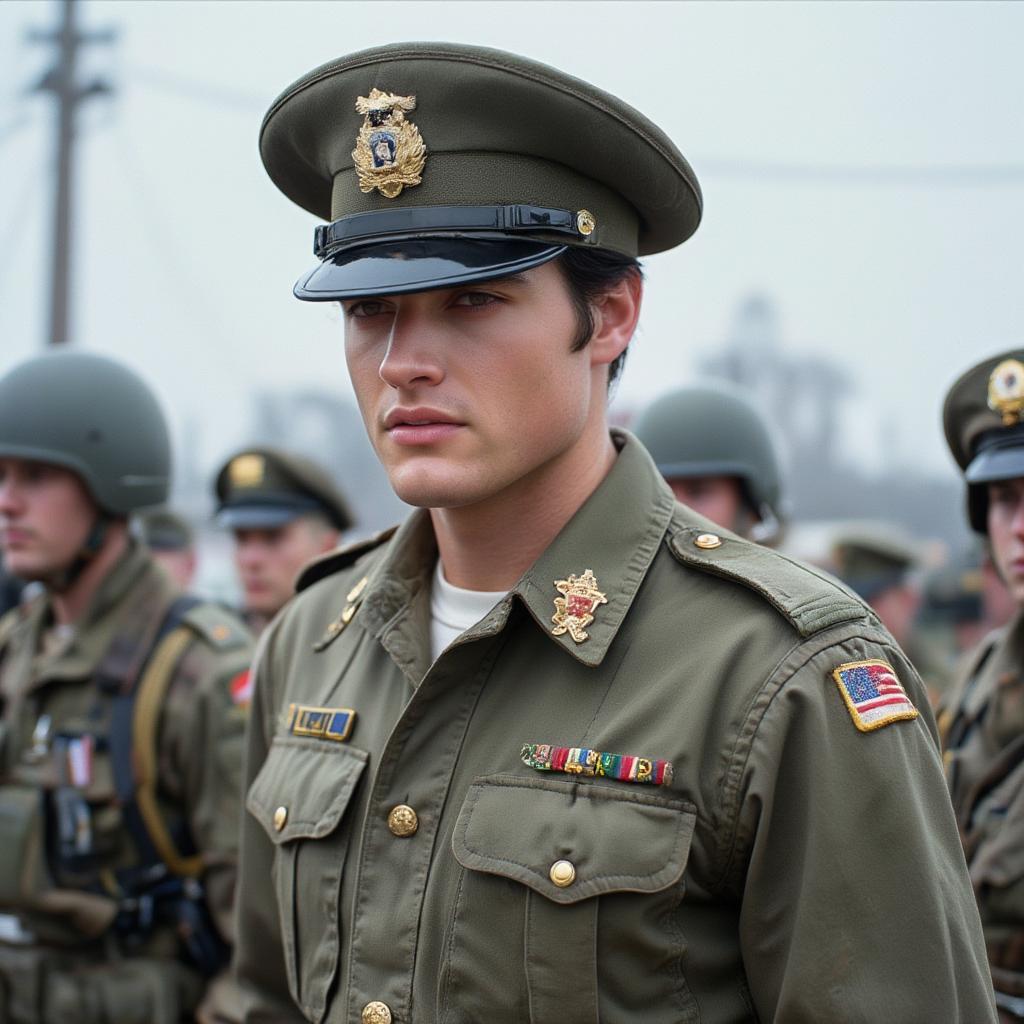Austin Butler Sings in Elvis: Unveiling the Vocal Transformation and Its Impact
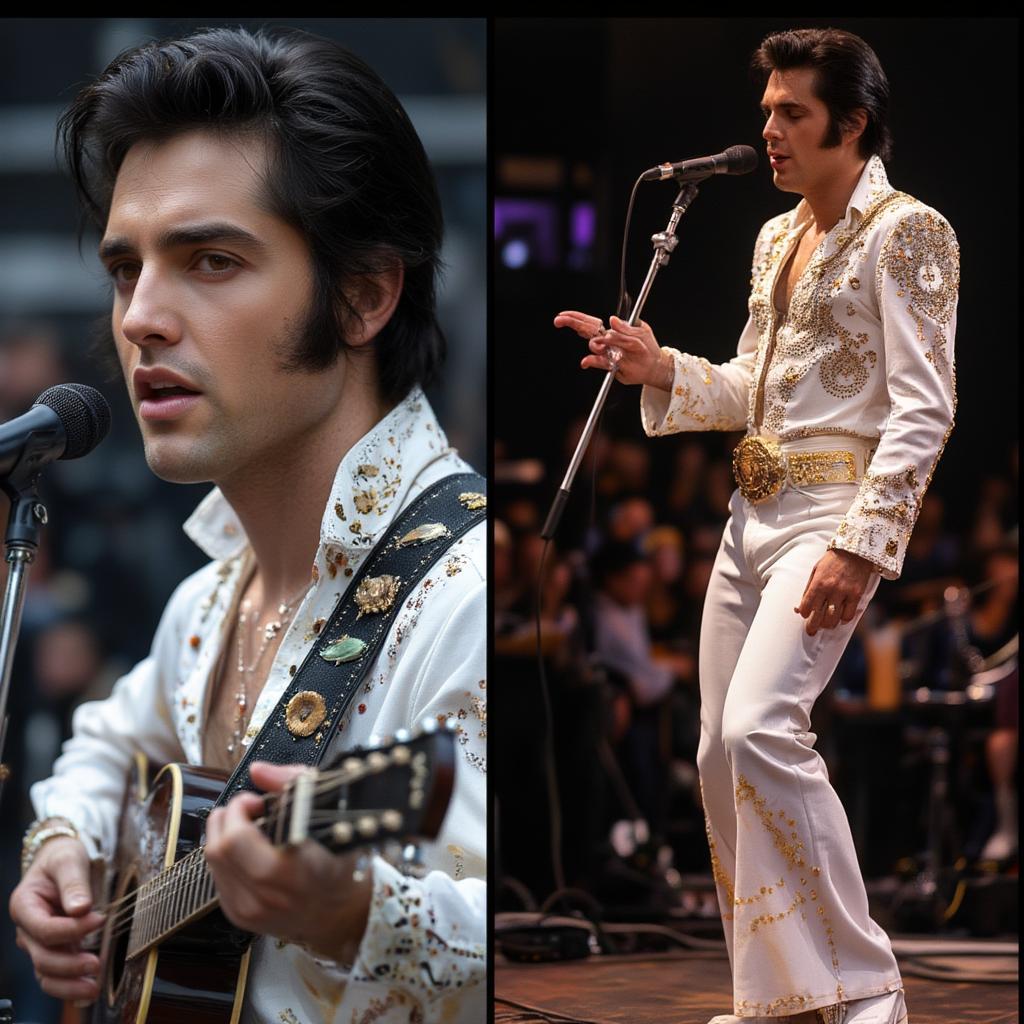
The buzz around Baz Luhrmann’s Elvis biopic was undeniable, and a significant part of that was the performance of Austin Butler. A burning question arose for many: Did Austin Butler actually sing in Elvis? The answer, while not straightforward, reveals a fascinating blend of talent, technology, and dedication, shaping not just a performance but a cultural phenomenon. It’s time we delve into the nuances of this remarkable vocal transformation.
The Vocal Mystery: Austin Butler’s Journey to Become The King
The initial trailers for Elvis sparked intense speculation. Could Butler, known for his acting chops, truly capture the legendary voice of Elvis Presley? The truth is, the movie employed a clever mix of Butler’s singing, archival recordings of Presley, and masterful sound engineering. Butler did indeed sing many of the early Elvis songs in the film, capturing the rawness and energy of the young King. His commitment was extraordinary, working for months with a vocal coach to master Elvis’s unique vocal style. He studied Elvis’s vocal cadences, mannerisms, and inflections.
However, as the film progresses and Elvis’s voice matures, the soundscape shifts. The more iconic, powerful vocals were often a combination of Austin’s work and the original recordings of Elvis. This blend was seamless, ensuring the movie stayed authentic while showcasing Butler’s dedication to the role. This approach allowed for the performance to feel both like a tribute and also stand as a unique artistic achievement. The result is a performance that is not just an impersonation, but a soulful portrayal, giving new depth and emotion to the familiar sounds.
Why the Hybrid Approach?
Using a hybrid approach, blending Butler’s voice with the original Elvis recordings wasn’t a case of lacking faith in Butler’s ability. It was a deliberate artistic choice, respecting the legacy of Elvis Presley while acknowledging the unique challenges of such a portrayal. Capturing every nuance of Elvis’s legendary vocals over such a long span would be an impossible feat for any one person. This careful mix, therefore, served to amplify the emotional connection and resonance for the audience. This wasn’t just about replicating a voice but capturing the essence of an era.
“The goal was never to do a complete karaoke version of Elvis, it was to feel like we were present in the evolution of his voice,” explains sound designer David Farmer. “We wanted the audience to feel the shifts and turns in Elvis’s music.”
How Austin Butler Honed His Voice
Austin Butler’s vocal transformation wasn’t a stroke of luck; it was the result of immense dedication. He wasn’t just trying to mimic Elvis’s voice; he was trying to understand and embody it. His work with a vocal coach focused on understanding and developing the physical and mental techniques that shaped Presley’s sound. This wasn’t about singing like Elvis, it was about feeling like Elvis. Here are some steps he took:
- Vocal Coaching: Austin spent months working with a dedicated vocal coach to understand the unique ways Elvis sang.
- Immersive Study: He listened to Elvis’s recordings repeatedly, absorbing the nuances and inflections.
- Physical Transformation: He adjusted his posture, breathing, and even his diet to help him channel Elvis’s physical presence.
- Emotional Connection: Austin tried to understand Elvis’s emotional state when singing, and allow his feelings to flow into his portrayal.

The result of this preparation was truly impressive and allowed for the performance to feel both authentic and compelling. The audience witnessed not just a talented actor but a performer truly embodying the persona he was portraying. It’s this level of dedication that made his portrayal resonate so deeply with viewers.
Capturing the Soul of the King
It’s not just about hitting the right notes, it’s about capturing the heart of a song. Butler dedicated himself to deeply understanding each song, understanding the emotional core and the intent behind each performance. This meant going beyond the melody, immersing himself in the lyrics, and feeling the heart of the music.
“Austin didn’t just learn the songs; he lived them,” shares voice coach Valerie Morehouse. “He connected with the emotions behind each word and each note, it wasn’t just an exercise in mimicry.”
The Impact of Butler’s Performance
The debate about whether Austin Butler sang in Elvis often overshadows the true point: his performance transcends mere mimicry. It’s a powerful, transformative portrayal. The film wouldn’t have achieved the same level of success and emotional depth without his exceptional commitment. His vocal performance was a vital piece of the puzzle that made the film so compelling.
The blend of Butler’s voice and original recordings created a unique sonic experience, a powerful way of connecting the past and present. This innovative approach to filmmaking is something we, at Welcome Shock Naue, believe in, finding innovative ways to keep the spirit of Elvis alive for new generations. It’s a reminder that respecting legacy doesn’t mean being stagnant; it means finding new ways for timeless music to be relevant and to inspire.
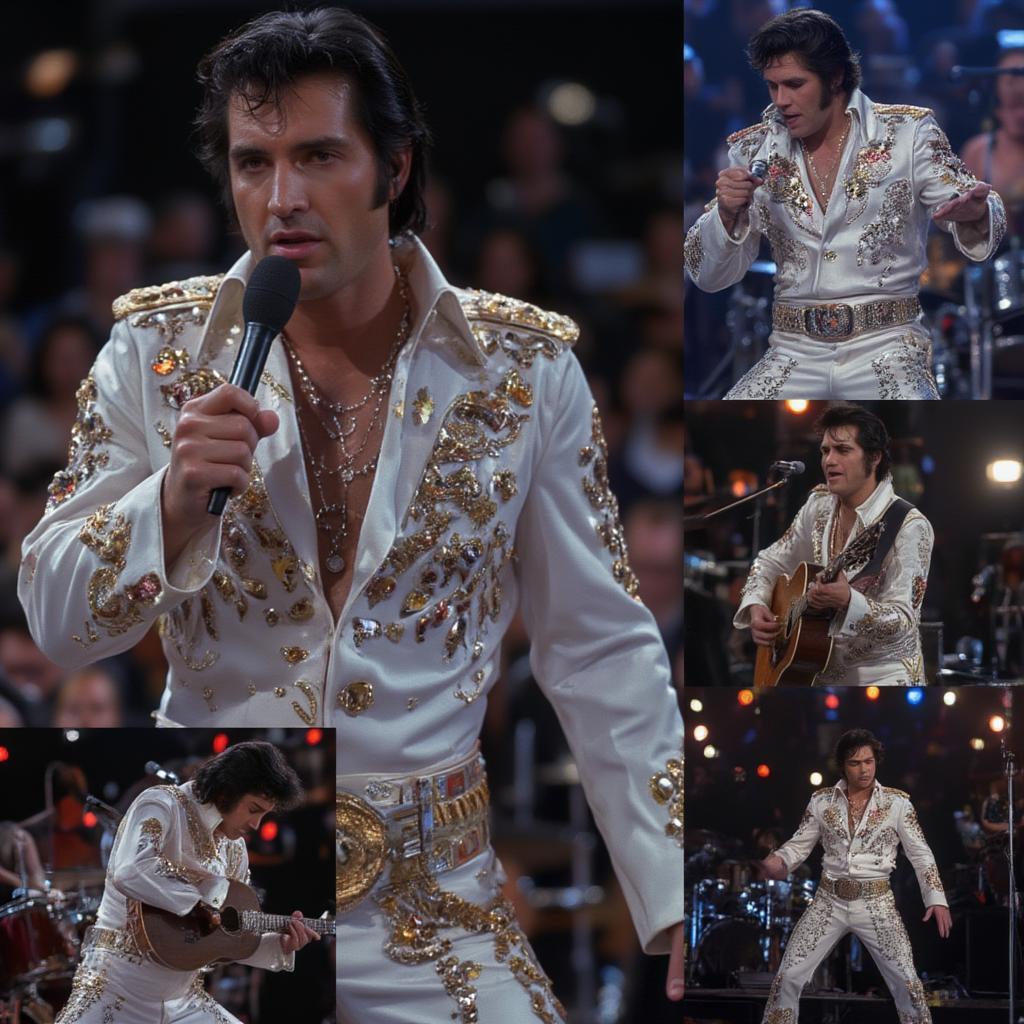
Honoring the Legacy
We, at Welcome Shock Naue, appreciate the respect and creativity Austin Butler displayed in his rendition of Elvis. It’s about more than just imitation; it’s about honoring the legacy, it’s about breathing life into a legend. Our goal is to keep the raw emotion, the power, and the spirit of Elvis’s music alive, not just through the archival tracks, but through innovative ways to connect with his enduring legacy. We celebrate the dedication to both authentic reproduction and groundbreaking innovation, as seen in the performance of Austin Butler.
The Future of the King’s Legacy
The controversy surrounding Butler’s voice is testament to the ongoing power and relevance of Elvis’s legacy. It sparked conversation and led new generations to explore his music, which is exactly what we hope for at Welcome Shock Naue. The work done in the Elvis biopic showed what’s possible when talent, dedication, and modern technology combine. It is a testament to how music can bridge gaps in time.
This entire cinematic experience, and more specifically the sonic approach in it, proves that the future of Elvis’s legacy lies in a harmonious combination of preserving authenticity and embracing innovation. It’s a lesson that resonates through all of our work at Welcome Shock Naue: let’s honor the past while embracing the future.
Conclusion
In the end, did Austin Butler sing in Elvis? Yes, he did, and that’s part of the magic of the film. His performance, coupled with the ingenious blending of his voice and Elvis’s original recordings, has sparked renewed interest in the King’s legacy. The result wasn’t just a tribute; it was a revival, reminding the world of the timeless power of Elvis’s music. At Welcome Shock Naue, we’re committed to keeping that flame alive, inviting both seasoned fans and new generations to experience the revolutionary music of The King. We will continue to find new and meaningful ways to share the music and spirit of Elvis Presley with the world.
FAQ
1. Did Austin Butler completely sing all of Elvis’s songs in the movie?
No, Austin Butler sang many of the early Elvis songs, but the later and more iconic vocal performances are often a blend of his voice and archival recordings of Elvis.
2. What kind of training did Austin Butler undergo to prepare for the singing role?
Butler worked extensively with a vocal coach, immersed himself in Elvis’s music, and also adjusted his physical form to capture the way Elvis moved and sang.
3. Why didn’t they just have Austin Butler sing all the songs?
The decision to use a hybrid approach was a conscious artistic choice to remain true to the distinct changes in Elvis’s voice over time, blending Butler’s dedicated performance with the King’s original sound.
4. How does the hybrid vocal approach impact the overall movie experience?
The hybrid approach adds authenticity and emotional resonance to the performance, allowing the audience to experience the evolution of Elvis’s vocal style throughout his career.
5. What was the main goal of Austin Butler’s singing approach?
The goal wasn’t simply mimicry but a deep, emotional connection to the music, and that he was there to embody Elvis’s spirit, rather than impersonate his sound.
6. How does “Welcome Shock Naue” approach the legacy of Elvis’s music?
At “Welcome Shock Naue”, we are committed to finding innovative ways to preserve the integrity of Elvis’s music while connecting with new generations, a goal clearly shared in the Elvis biopic.
7. Can Austin Butler truly sound like Elvis?
Austin Butler’s dedication and hard work resulted in a voice that captured the essence of young Elvis, but the combination with original vocals was necessary to cover his entire vocal journey.
8. What made Butler’s performance stand out?
Butler stood out not just because of his vocal talent, but because of his dedication to understanding and feeling what it meant to be Elvis, connecting emotionally to both the role and to the music.


